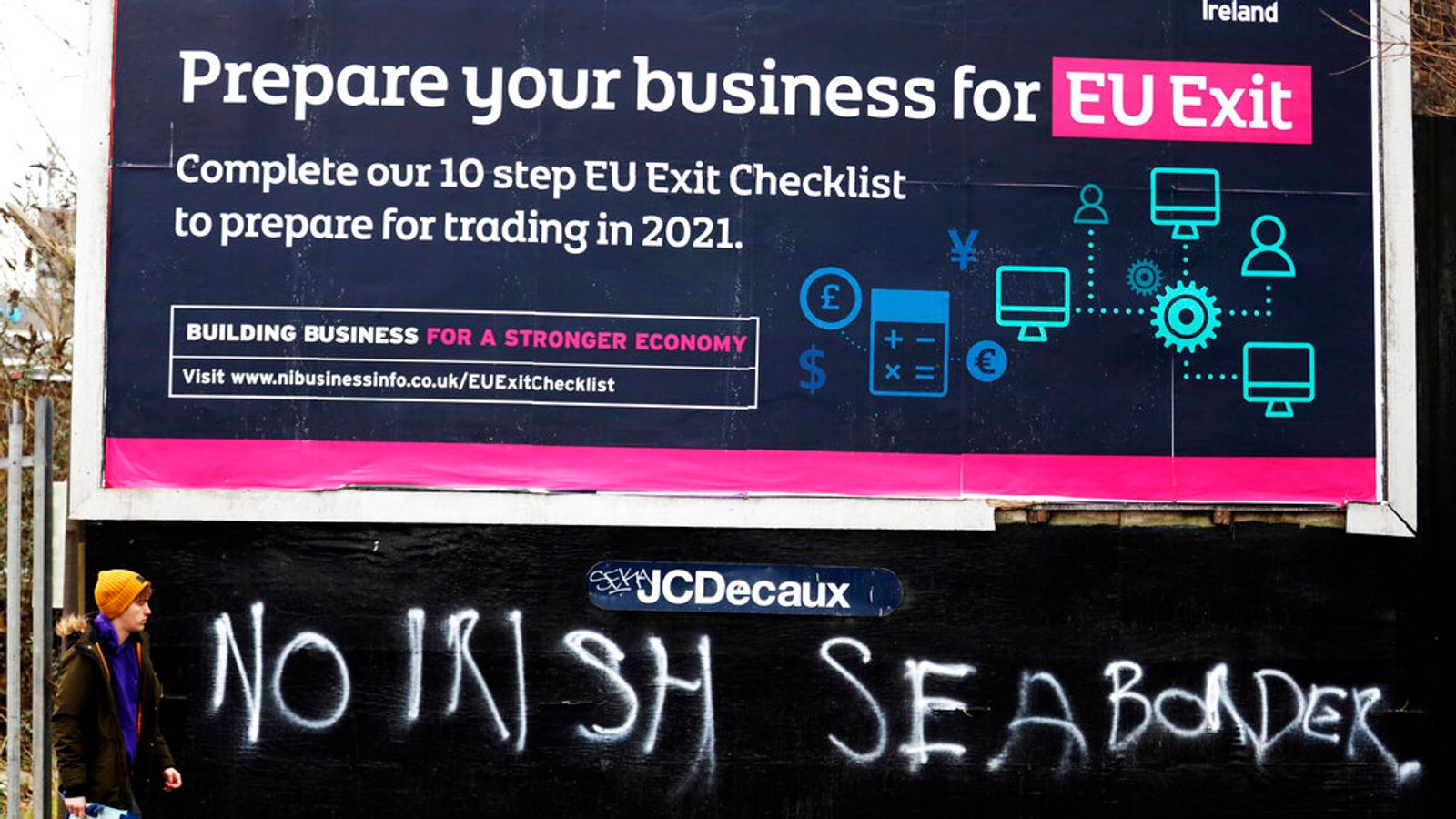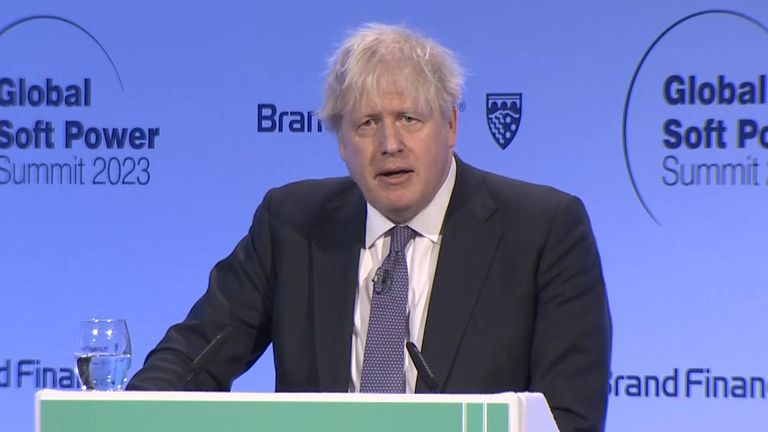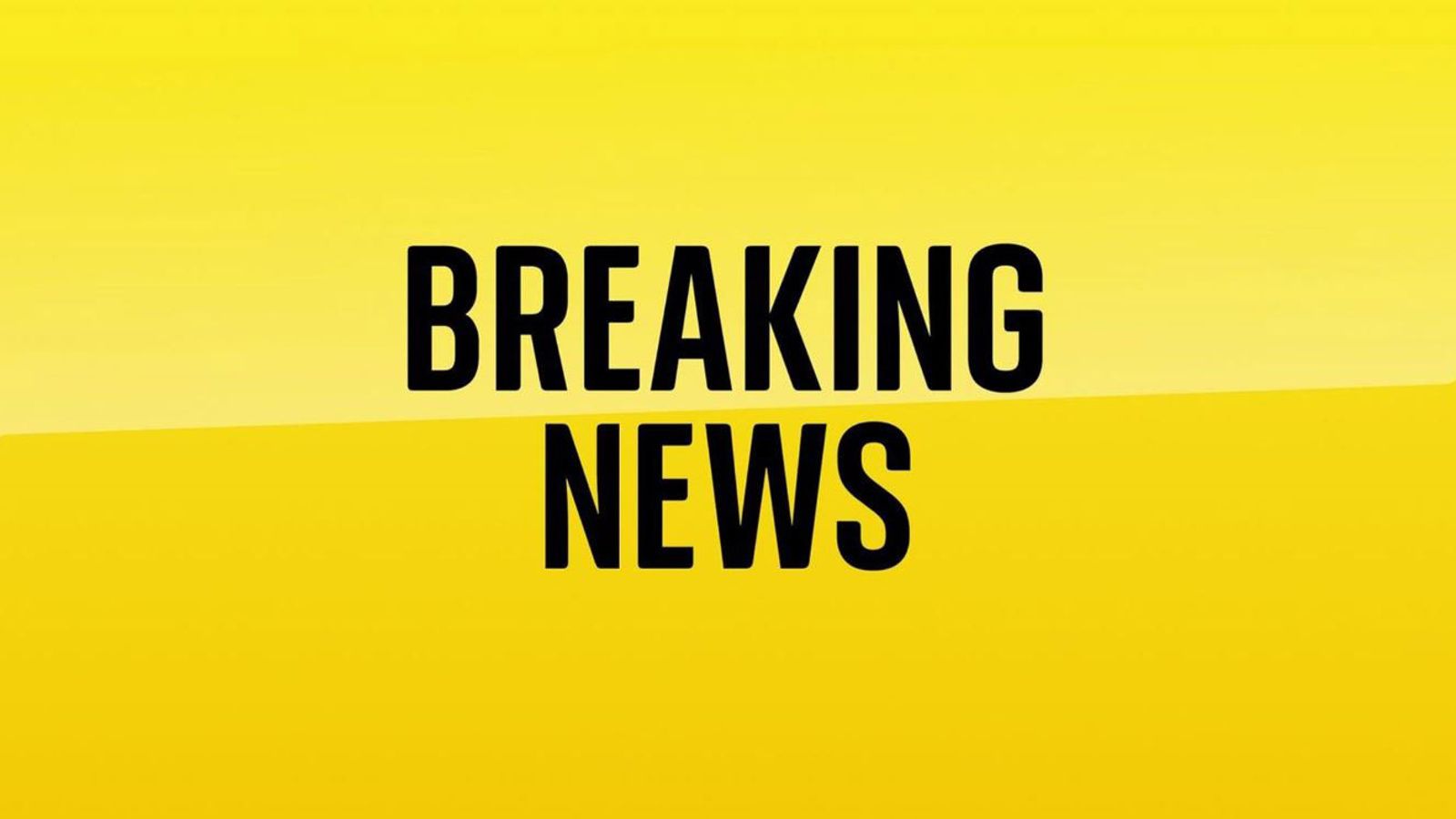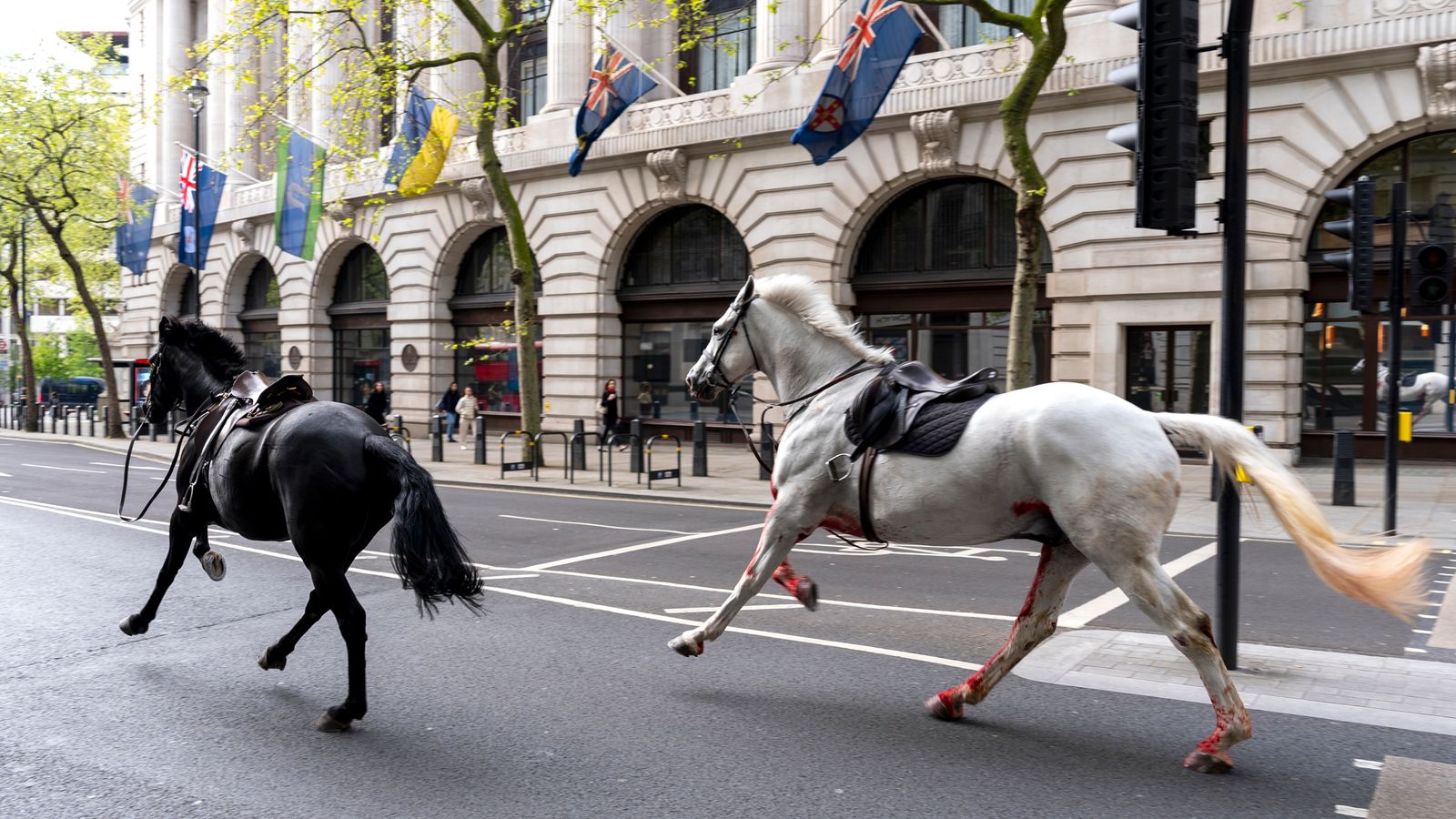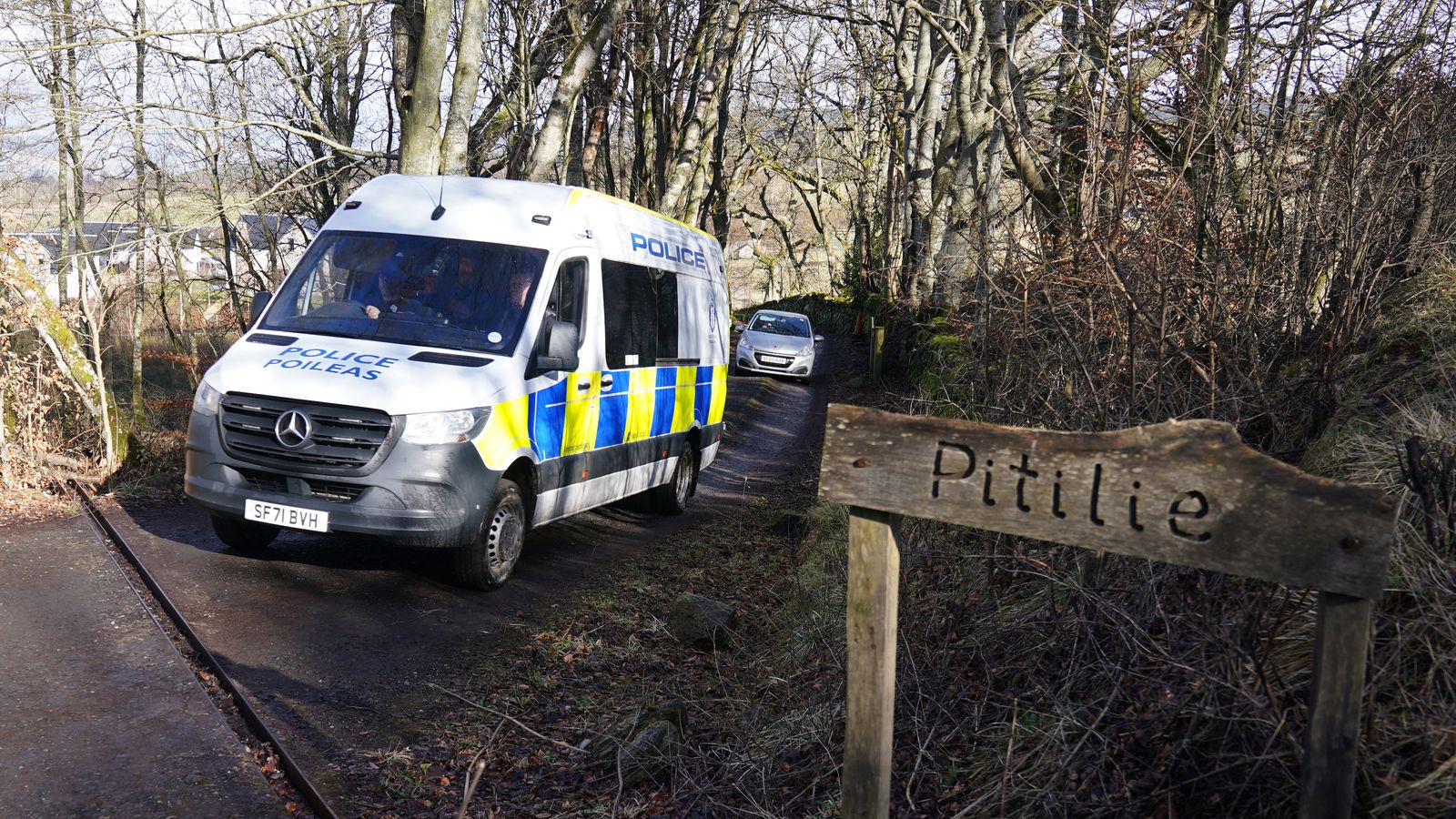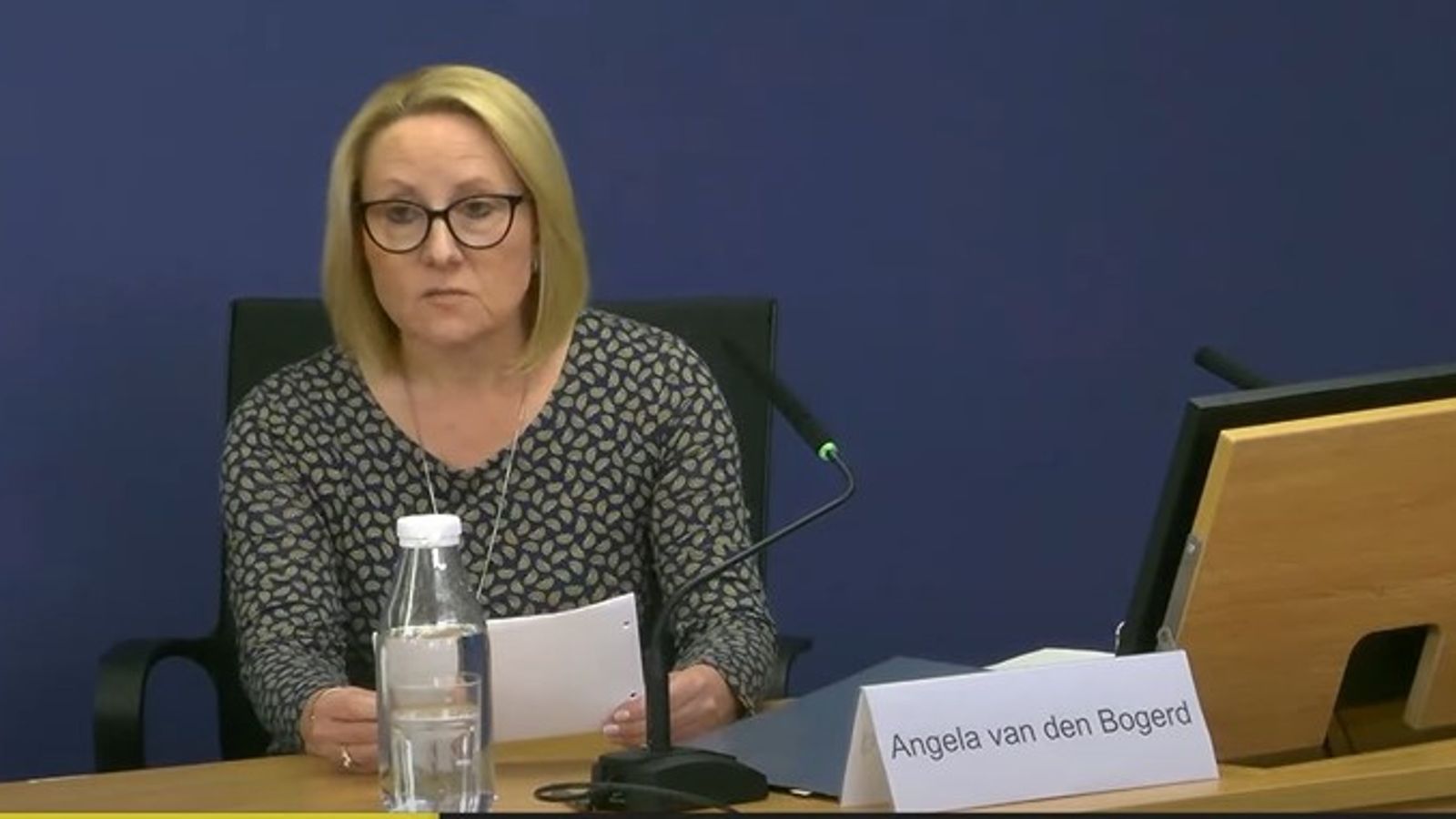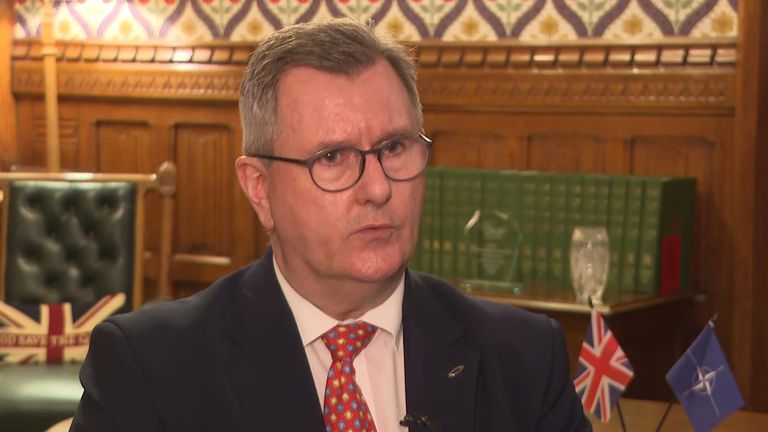
The DUP says it will vote against a key aspect of Rishi Sunak’s Brexit deal when it is put to a crunch vote in parliament this week.
In a statement, party leader Sir Jeffrey Donaldson said while the Windsor Framework represented “significant progress” in addressing concerns with the Northern Ireland Protocol, it does not deal with some of the “fundamental problems at the heart of our current difficulties”.
As a result, they have said they will vote against the first aspect of the deal to be considered by MPs, the Stormont brake.
Politics live: The WhatsApp messages Boris Johnson believes will help vindicate him over partygate
This would allow a minority of politicians in Belfast to formally flag concerns about the imposition of new EU laws in Northern Ireland – a move that could see the UK Government veto their introduction in the region.
Downing Street said this would address the so-called “democratic deficit” caused by the protocol, but Sir Jeffrey said the brake “is not designed for, and therefore cannot apply, to the EU law which is already in place and for which no consent has been given for its application”.
“Whilst representing real progress, the ‘brake’ does not deal with the fundamental issue which is the imposition of EU law by the protocol,” he said.
The DUP’s opposition does not mean the legislation will fail, but it makes the likelihood of the unionist party rejoining powersharing slimmer.
The DUP pulled out of the arrangement for devolved government in Northern Ireland early last year in protest at the protocol.
The mechanism was agreed by Boris Johnson under his “oven ready” Brexit deal to prevent a hardening of the land border on the island of Ireland – which all sides agreed was necessary to preserve peace.
But it led to trade barriers being created between Great Britain and NI – effectively creating a customs border down the Irish sea.
The UK and Brussels agreed the framework as a way to cut the red tape created by the protocol, while giving politicians in Northern Ireland more of a say over EU laws in the region.
Having spent weeks scrutinising Mr Sunak’s deal, the DUP hinted at their opposition earlier on Monday when they released a statement saying “there is more work to do”.
And senior DUP MP Ian Paisley said he would “categorically” vote against the government, saying the framework “did not cut the mustard” when it came to passing the party’s seven tests.
The backlash could pave the way for a wider rebellion, as many Tory Eurosceptics were waiting to see what the DUP says about the framework before deciding whether to back the government.
Return of powersharing ‘up in the air’
Downing Street has indicated the vote on the Stormont brake will be read as indicative of parliament’s position on the wider deal.
Announcing the party’s intention ahead of Wednesday’s vote, Sir Jeffrey said: “Our party officers, the only decision-making mechanism in our party on these matters, met this morning and unanimously agreed that in the context of our ongoing concerns and the need to see further progress secured whilst continuing to seek clarification, change and re-working, that our Members of Parliament would vote against the draft statutory instrument on Wednesday.”
He said that his party will continue to work with the government “on all the outstanding issues”.
“It is our party view that there remain key areas of concern which require further clarification, re-working and change as well as seeing further legal text,” the DUP leader added.
A DUP source said that the return of the NI assembly remains “up in air and depends on pace of government putting in arrangements unionists can support”.
They criticised the prime minister for “forcing a vote”, saying a better approach would have been to “recognise progress and keep working at it”.
Downing Street defended the government’s approach earlier on Monday, saying it allows MPs “to have their say on what we believe to be the most significant elements of the framework”.
A spokesperson added: “This framework secures changes which many individuals and groups said weren’t possible. The Stormont brake is chief among them.
“With regard to EU regulation, these have been reduced right down to the very minimum level to ensure there is no border on the island of Ireland.
“I think that is the overriding priority of all parties in protecting and securing the Good Friday Agreement.”

